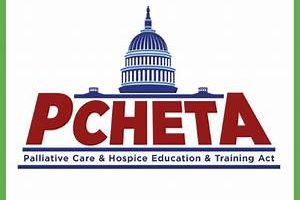While members of Catholic Business Journal staff may have a modified view of this matter based on certain experiences and realities, we feel it is important to highlight and share what faithful Catholic, pro-life physicians advocate. Please add your comments to the matter below. —editor. The Catholic Medical Association, along with the U.S. Conference of Catholic Bishops, Catholic Health Association and many others, issued its support of S. 2080, the Palliative Care and Hospice Education and Training Act (PCHETA) pending in Congress.
PCHETA will provide federal grants to train more health professionals with expertise in palliative care so they can integrate it into their own practices. It will also fund research to improve methods for palliative care, and support programs to inform patients and health professionals of the benefits of such care.
“Our role as physicians is to care for patients at all stages of their lives, and to try to do so in an empathetic manner, showing them kindness and charity in their particular circumstances,” said CMA President, Dr. John Schirger.
“When there is nothing further we can do to change the course of a disease process, we can still remain with them, showing them kindness and solidarity. Our colleagues who practice palliative care have a privileged opportunity to care for patients during this most important time of their lives,” added Dr. Schirger.
Most importantly, the Act incorporates the policy of the Assisted Suicide Funding Restriction Act, which since 1997 has excluded assisted suicide and euthanasia from all federal health programs. It also adds an explicit provision that in this new Act, “palliative care and hospice shall not be furnished for the purpose of causing, or the purpose of assisting in causing, a patient’s death, for any reason.”
“Some of our friends and allies in the effort against euthanasia and assisted suicide have criticized the Act, citing alarming stories of patients needlessly sedated or given large doses of pain medications to cause death, and point to efforts by some physicians, ethicists and state legislators to define assisted suicide as a form of palliative care ” said Dr. Steven White, Chair of CMA’s Healthcare Policy Committee.
CMA shares these serious concerns but believes that legislation like PCHETA is not part of the problem but part of the solution.
“Support for quality palliative care is more needed than ever. We trust that good practices will help drive out bad ones,” added Dr. White.
CMA believes it is timely and urgently necessary that we help establish a national policy now that the goal of palliative care is to promote effective relief of pain and suffering, not to eliminate the sufferer.
CMA encourages colleagues concerned about our profession’s respect for human life to join us in this effort.
———————
The Catholic Medical Association is a national, physician-led community of over 2,300 healthcare professionals consisting of 109 local guilds. CMA’s mission is to inform, organize, and inspire its members, in steadfast fidelity to the teachings of the Catholic Church and to uphold the principles of the Catholic faith in the science and practice of medicine.



You must be logged in to post a comment.